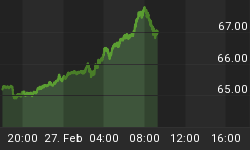Two years ago, at the height of the U.S.-China trade war, a simple visit to an obscure factory by Chinese President Xi Jinping was all it took to trigger widespread pandemonium in U.S. markets by raising the specter that Beijing was contemplating cutting off supply of critical materials to the U.S. and potentially crippling large swathes of its industries. Fueled by political innuendo in Xi’s call for a new “Long March” in reference to a key founding tenet of the Chinese Communist Party, speculators have been growing increasingly wary of Chinese export restrictions to the U.S., including rare earth minerals. As the world’s largest producer, the Middle Kingdom really has a stranglehold on rare earths supply, providing more than 85% of the world's rare earths, and is also home to about two-thirds of the global supply of scarce metals and minerals.
Rare earth minerals, also known as the “vitamins of chemistry”, are a group of elements used in the manufacture of a wide range of equipment in small doses to produce powerful salutary effects. These minerals are extensively used in smartphones, batteries, turbines, lasers, electromagnetic guns, missiles, advanced weapon sensors, stealth technology and jamming technology.
But what if the tables are turned and it's China itself that has to worry about supply chain disruptions for key components and materials? This is a massive risk that Beijing has envisaged for its booming tech industry--and is working hard to avert.
Related: Top 3 Predictions For Bitcoin In The New Year
After all, factories in China build cars, smart phones and computers, but are forced to rely heavily on parts from countries including the U.S., Japan, Taiwan, South Korea and some European nations. China currently does not make nearly enough semiconductor chips to support its huge tech industry, and has to import ~$300 billion worth of chips every year mainly from Taiwan, home to the world’s largest contract chipmaker, Taiwan Semiconductor Manufacturing Company (NYSE:TSMC).
Self reliance
Worsening diplomatic relationships with any of these countries could jeopardize China’s tech sector. For instance, China-Taiwan tensions have worsened over the past few years, with Beijing refusing to rule out a cross-strait military confrontation as it tries to reunite with what it views as a “rogue province.”
Although an all-out war would likely sever the chip supply chain altogether, it’s by no means the only threat facing China. Taiwan can also take steps to reduce its reliance on China, for example by signing a free trade deal with the U.S. and cutting off its chip trade with China entirely.
Sensing this vulnerability, President Xi Jinping has declared that ‘‘self-reliance is the foundation for the Chinese nation,” and said that China must become a technology leader to protect its “national economic security.”
Beijing’s first move to attain technological independence has been helping one of its largest companies, Alibaba Inc. (NYSE:BABA), make computer chips.
Better known for its internet and ecommerce prowess, over the past three years, Alibaba’s company T-Head has started making chips which it says are strictly for sale within China's borders.
Two other companies, including Tencent Holdings (OTCPK:TCEHY), a company that develops games and other social media, are working on building chips, too. China is currently in a 15-year-window for investing $150 billion in its chip industry, with the window set to close in 2030.
Indigenous innovation
China’s indigenous innovation policy (zizhu chuangxin) has achieved some success, including technology development in ultra-high voltage transmission, high-speed rail, and several military applications. The policy has also led to a large number of scientific papers and patents that serve as intermediate outputs for research and development.
But developing complete technological independence is easier said than done.
First off, China lags significantly in everything it needs to be able to make the chips, with experts saying that Chinese manufacturing is about 10 years away from being able to equal the production of large chipmakers.
Second, China’s technology industry has very few factories to produce chips once they are designed, and obtaining the necessary equipment and technology can be an onerous task. For instance, China's largest chip maker, SMIC, has been trying to buy equipment from the world’s photolithography leader, Netherlands’ ASML. However, so far, the Dutch government has failed to give consent for a sale.
China also faces a raft of measures by nations that restrict technology transfer to China. One such measure is the U.S. government 2018 ban on China’s telecom giant Huawei from U.S. communications networks on security concerns. Companies like Alibaba are likely to get better at designing chips, but might find progress limited by the fact that the tools they need to produce them are restricted by the governments of the U.S. and various European countries.
Ultimately, achieving total technological independence might be a mirage. In the digital age where economic and social complexity is increasing and innovation efficiency and speed are required, China must co-create with members of the global innovation ecosystem. As U.N. Secretary-General Antonio Guterres admonished last year, the United States and China need to “avoid that the world becomes separated.”
By Fred Dunkley for Safehaven.com
More Top Reads From Safehaven.com:
















